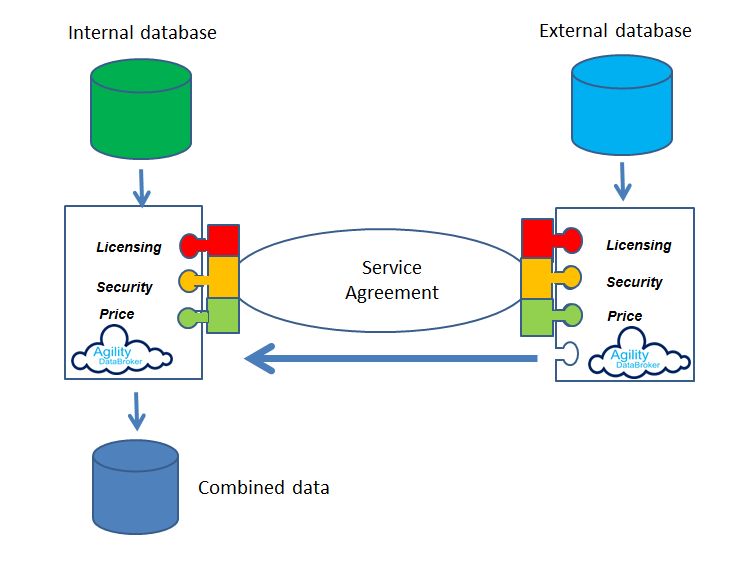The generation of in-house data can often be turned into meaningful information by its combination with external data. A typical example would be where a supermarket chain stores buying patterns alongside debit/credit card information generated at point of sale as their only means to identify their customers. When they market a new promotion they will need contact information such as email or postal addresses for those customers which they might obtain from the debit/credit card company. By combining their own data with that of the debit/credit card supplier they are able to market to their customers based on that customer's specific buying patterns. The use of strictly enforced, but dynamically changeable service agreements between the parties, administered and audited by Agility DataBroker, prevents abuse and allows for preagreed pricing algorithms for extracting the data to be implemented.

The same model with unilateral, bilateral or multilateral exchange of data, all enforced by service agreements under the control of Agility DataBroker, can be applied in most public sector organisations or commercial organisations to turn data into information. Local authorities might use licence plate numbers extracted from traffic management data in conjunction with DVLA data to send notices to drivers that they need to reign in their speed in future or face the consequences. Central government might wish to collate benefit claimant information with data from the registrar of births and deaths to identify claims being made for those who have already passed on. Manufacturers might wish to collate future sales forecasts with component suppliers' production data. The options are only limited by the existence of the data and the willingness of the data owners to exchange the data under the terms of an enforceable service agreement.
As an extension of this capability, data owners may choose to make their data more generally available through Agility DataBroker. By defining the global access policies to their data within Agility DataBroker upfront they may then release that data to their customers/partners within the framework by dynamically allocating pre-encapsulated policy, so reducing paperwork, avoiding delay and expediting data exchange.
Agility DataBroker is a framework that allows an organization to unlock the value of data through its controlled consolidation, analysis and distribution.



